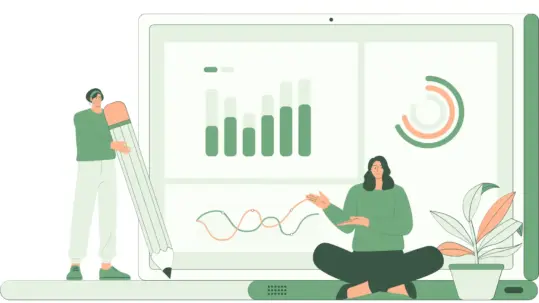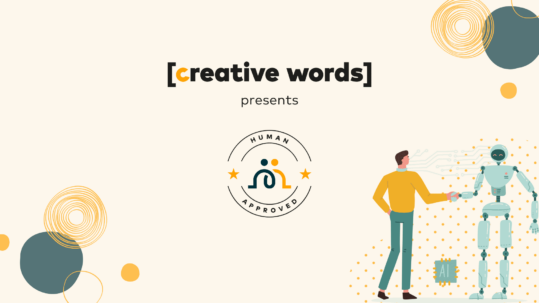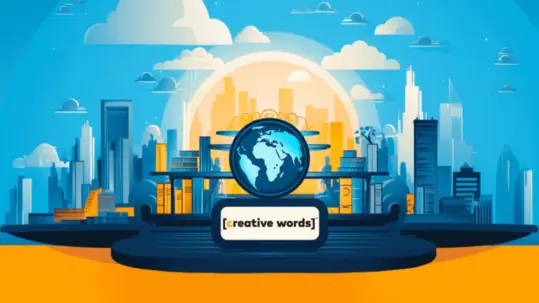
21 Sep Industry and translations 4.0
Automated systems for producing and translating in a swift and efficient manner, but always under human supervision.
Industry 4.0 arose from the Fourth Industrial Revolution and is bringing about a new model of industrial production that is automated and interconnected. New digital technologies are having a strong effect on the four directions of development, which are also supported by 5G.
The first, which includes the use of data, the power of calculation and connectivity, finds expression in big data, open data, IoT and cloud computing. Then the second direction is that of analytics, for deriving value from the data collected and making forecasts and predictions. The third direction of development concerns the interaction between human and machine, which involves, among other things, augmented reality. Lastly, the sector dealing with the move from the digital to the “real” comprises additive manufacturing, robotics, communication, and machine-to-machine interactions. It’s not difficult to imagine a comparison between industry and translations, or the development of the manufacturing industry and that of language services or .
The latter, which is often referred to by its reductive term “translation”, is experiencing a growth completely similar to Industry 4.0.
Long gone are the days when translations were completed by an isolated translator, closed up in his room with his dictionaries, and sent by email/fax. With the advent of Translation 4.0, or “augmented translation”, the world of commercial translation has become more efficient and connected, to the point that it uses technologies based on deep learning, such as neural machine translation.
Translation 4.0 is not limited to the automation of a few parts of the process. But refers to the automation of manual activities throughout all phases of the process. From the request of a customer, through the creation of connections between the systems of the client and that of the language service provider. Right up to the delivery phase, in which the translation can be published on a website without any human intervention.
Between the assigning of a translation project and its delivery, it’s possible to automate the selection of the most suitable linguist and work assignment to the translator and reviser. Workflow may also envisage the additional step of machine translation, which requires the training and integration of advanced software systems. And which must inevitably be followed by a step of “human” revision, also known as “post-editing”.
What then drives us to continually search for a better solution? To put it shortly, it’s the need for an improved and consistent qualitative output, with the lowest cost possible and the fastest way possible.
What specifically do Industry and Translations 4.0 have in common?
First and foremost, the automation and replacement of manual work. In Industry 4.0, this means the use of robots for production, the automated planning of activities by machines linked to each other, automatic material handling systems, MaaS (Manufacturing-as-a-Service).
In Translation 4.0, this entails the linking of content management systems (CMS) of customers with translation management systems (TMS), the elimination of file sharing by email, post/fax, the introduction of computer-assisted translation and of machine translation in the workflow.
A second feature they share is the elimination of inefficiencies. For Industry 4.0, this means the implementation of processes aimed at improving execution, optimal organisation of logistics to reduce the movement of people and goods, and use of intelligent machines capable of decreasing waste in the production of a part or product. We obtain a reduction in the number of messages through the integrated management of translations in an automated workflow and the completion of translations in integrated systems that can manage formatting, thereby reducing layout times.
The third characteristic they have in common concerns smart supply chains, which in Industry 4.0 is implemented by intelligent procurement systems for ordering materials automatically in the event of stock shortages and by automated supply chain management systems for selecting a supplier with the best quality-price ratio based on previous orders while in Translation 4.0 it corresponds to the automated selection process of the linguist best suited for a translation based on past performance, relevant subject matter, language combinations and availability.
Finally, quality control and human supervision are fundamental to Industry 4.0
Where the precise control of workflow and products (through touch technology, for example) are useful in avoiding costly errors, product returns and an excessive number of support requests. These elements are important in Translation 4.0, which requires careful quality control of translations and a continuous check of workflow effectiveness in addition to the revision of translations carried out by machine translation systems.
This pursuit of efficiency in industrial production and in translation thus leads us to the same result. The product or service is developed in a more consistent manner, with greater quality, a quicker time-to-market and exponentially lower costs. Industry and Translations 4.0 are doomed to have enduring success. Especially in Italy, where the manufacturing industry is thriving, and at a time when it’s essential to look towards new markets.
For continued success, it’s necessary to push ahead with the integration of new technologies and connections. It’s necessary to develop skills like problem solving, critical thinking and creativity, not worrying that machines might replace human beings and lower employment levels. Increasing dialogue with universities, which can be the place to develop digital skills and technological talent to face this revolution, as well as future ones.






